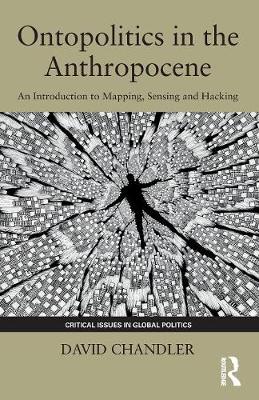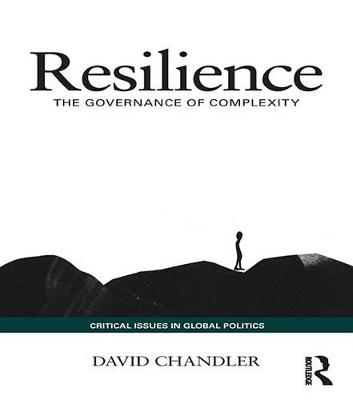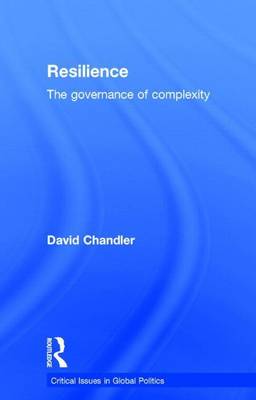Critical Issues in Global Politics
4 total works
The Anthropocene captures more than a debate over how to address the problems of climate change and global warming. Increasingly, it is seen to signify the end of the modern condition itself and potentially to open up a new era of political possibilities. This is the first book to look at the new forms of governance emerging in the epoch of the Anthropocene. Forms of rule, which seek to govern without the handrails of modernist assumptions of ‘command and control’ from the top-down; taking on board new ontopolitical understandings of the need to govern on the grounds of non-linearity, complexity and entanglement.
The book is divided into three parts, each focusing on a distinct mode or understanding of governance: Mapping, Sensing and Hacking. Mapping looks at attempts to govern through designing adaptive interventions into processes of interaction. Sensing considers ways of developing greater real time sensitivity to changes in relations, often deploying new technologies of Big Data and the Internet of Things. Hacking analyses the development of ways of ‘becoming with’, working to recomposition and reassemble relations in new and creative forms.
This work will be of great interest to students and scholars of international politics, international security and international relations theory and those interested in critical theory and the way this is impacted by contemporary developments.
This concise and accessible new text offers original and insightful analysis of the policy paradigm informing international statebuilding interventions. The book covers the theoretical frameworks and practices of international statebuilding, the debates they have triggered, and the way that international statebuilding has developed in the post-Cold War era.
Spanning a broad remit of policy practices from post-conflict peacebuilding to sustainable development and EU enlargement, Chandler draws out how these policies have been cohered around the problematization of autonomy or self-government. Rather than promoting democracy on the basis of the universal capacity of people for self-rule, international statebuilding assumes that people lack capacity to make their own judgements safely and therefore that democracy requires external intervention and the building of civil society and state institutional capacity. Chandler argues that this policy framework inverses traditional liberal-democratic understandings of autonomy and freedom - privileging governance over government - and that the dominance of this policy perspective is a cause of concern for those who live in states involved in statebuilding as much as for those who are subject to these new regulatory frameworks.
Encouraging readers to reflect upon the changing understanding of both state-society relations and of the international sphere itself, this work will be of great interest to all scholars of international relations, international security and development.
Resilience has become a central concept in government policy understandings over the last decade. In our complex, global and interconnected world, resilience appears to be the policy ‘buzzword’ of choice, alleged to be the solution to a wide and ever-growing range of policy issues. This book analyses the key aspects of resilience-thinking and highlights how resilience impacts upon traditional conceptions of governance.
This concise and accessible book investigates how resilience-thinking adds new insights into how politics (both domestically and internationally) is understood to work and how problems are perceived and addressed; from educational training in schools to global ethics and from responses to shock events and natural disasters to long-term international policies to promote peace and development. This book also raises searching questions about how resilience-thinking influences the types of knowledge and understanding we value and challenges traditional conceptions of social and political processes.
It sets forward a new and clear conceptualisation of resilience, of use to students, academics and policy-makers, emphasising the links between the rise of resilience and awareness of the complex nature of problems and policy-making.



